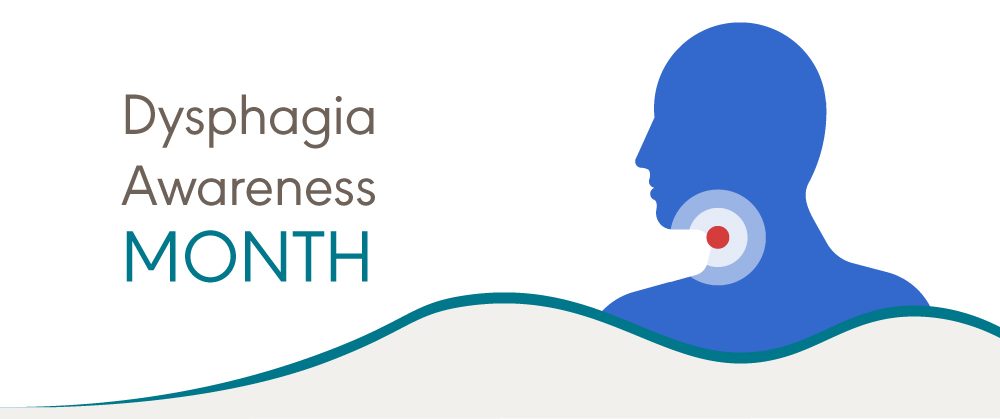It is estimated that every year, 4% of adults have a swallowing issue; for some, this may be a sign of a swallowing disorder, or dysphagia. Dysphagia is a serious condition that can affect a patient’s life immensely by interfering with their ability to eat and drink.
Speech-language pathologists (SLPs) are the preferred providers of dysphagia services. Below, we’re highlighting dysphagia articles published across three ASHA Journals in 2022 to help keep speech-language pathologists (SLPs) aware of the latest developments in dysphagia research.
New Dysphagia Research
Reliability of the Penetration–Aspiration Scale and Temporal and Clearance Measures in Poststroke Dysphagia: Videofluoroscopic Analysis From the Swallowing Treatment Using Electrical Pharyngeal Stimulation Trial: There is little research available on the reliability of the measures used to assess the effectiveness of dysphagia rehabilitation. In this article, the authors sought to evaluate interrater reliability when using the Penetration–Aspiration Scale and offered tips to ensure that these ratings are more reliable in the future.
Examining the Content and Outcomes of Training in Dysphagia and Mealtime Management: A Systematic Review Informing Co-Design of New Training: Staff who work with patients with dysphagia need training to ensure that mealtimes are safe and enjoyable for this population. This article looks at more than 20 studies and presents evidence-based findings about mealtime assistance training.
Understanding the Independent Predictors of Dysphagia-Related Quality of Life in Stroke Survivors: In this article, the authors aimed to pinpoint independent predictors of dysphagia-related quality of life in community-dwelling stroke survivors. The results emphasized that clinicians and researchers must consider patient needs on a holistic level to maximize the perceived quality of life for each patient.
Dysphagia Highlights From Perspectives
If you have a deeper professional interest in dysphagia, you can find more content through Perspectives of the ASHA Special Interest Groups. Special Interest Group (SIG) 13, Swallowing and Swallowing Disorders (Dysphagia), has contributed more than 700 articles to Perspectives over the past 25 years. Check out some recent additions from SIG 13 below, free for the month of June!
Shifting Landscapes of Practice Patterns for Pediatric Feeding and Dysphagia in Response to the COVID-19 Pandemic: The COVID-19 pandemic—and, in response, the nationwide increase in telepractice—changed the way that clinicians serve young patients with dysphagia. Authors stress the importance of adapting and learning in order to best serve clients of all ages.
Counseling Clients With Dysphagia: A Resource for Clinicians: Many people with dysphagia would benefit from counseling alongside standard speech-language pathology services, but most SLPs don’t know where to begin the counseling process. This article introduces SLPs to counseling techniques using examples that they may encounter in their day-to-day practice.
Dysphagia and Quality of Life, Participation, and Inclusion Experiences and Outcomes for Adults and Children With Dysphagia: A Scoping Review: Although the physical and nutritional aspects of dysphagia are well-studied, limited research is available on how dysphagia effects quality of life for those patients who are diagnosed with swallowing difficulties. This article aims to help clinicians better understand how dysphagia impacts quality of life, particularly for patients with lifelong dysphagia.
About Perspectives
Like what you saw above? Perspectives publishes more than 150 articles every year focusing on bridging the gap between research and practice.
Affiliates of any of ASHA’s 19 SIGs receive access to Perspectives as a benefit of affiliation. Learn more about how you can read Perspectives, connect with other ASHA members who share your research or clinical interests, and score big discounts on ASHA continuing education units (CEUs).
Dysphagia Month and Much More!
Aside from creating nutritional and health problems, dysphagia affects patients’ mental health by limiting opportunities to participate in events and share experiences with loved ones. SLPs are encouraged to be mindful of this fact. Being up to date on the latest dysphagia resources can help you discuss these issues openly with patients and can help them improve their day-to-day swallowing.
June isn’t just Dysphagia Awareness Month! Stay tuned next week for even more articles as we also celebrate Aphasia Awareness Month.









